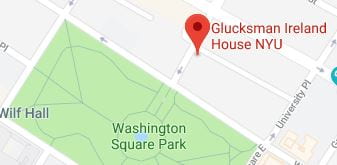The Global Asia Colloquium
Spring 2019. Fridays, 4:00-6:45. With Wine and Cheese. (unless otherwise indicated) we meet in 701 KJCC (53 Washington Square South). Come One and Come All !!
When we have two presentations, they occur 4:00-5:15 and 5:30:6:45.

Workshop Title: Building Between Land and Sea: Nature, Infrastructure and Development in South Asia
Devika Shankar (Princeton), “A Coast of Curiosities: Changing Perceptions of Nature and the Development of Cochin’s Harbour (1860-1900)
Chandana Anusha (Yale), “The story of a piece of land: Port-led changes in the Gulf of Kutch, Western India”
Ayesha Omer, “Coal Ground”
Discussant: Jerome Whitingon (NYU)
in Glucksman Ireland House, 1 Washington Mews, New York, NY 10003
Book Launch: David Riemers (NYU), All the Nations Under Heaven: Immigrants, Migrants, and the Making of New York. Presentations: David M. Reimers (NYU), Robert Snyder (Rutgers–Newark). Discussants: Hasia Diner and Kevin Kenny (NYU)
Prita Meier (NYU),”The Surface of Things: A History of Photography from the Swahili Coast
Nidhi Mahajan (UC Santa Cruz), “On Dhows and Dangers of the Sea: Navigating Risk and Protection in the Western Indian Ocean.”
Venue: Institute for Public Knowledge, 20 Cooper Square, 5th floor.
Global Asia Colloquium Panel:
“Spaces of Mobility in South Asia.”
Neelam Khoja (Harvard), “Claiming Qandahar, Claiming Sovereignty: How Iranian and Afghan Warlords Legitimized Emerging Empires in Early Modern Iran and Hindustan”
Ayesha Omer (NYU), “Digital Connections on the New Silk Road: A Study of the Pak-China Fiber Optic Cable”
Rishad Choudhury (Oberlin), “Pilgrim Passages: Tradition and Transition in the South Asian Hajj.”
1 March. No Meeting. History Department Prospective Students’ Day
Venue: Ireland House.
Thursday, March 7: 5:00 – 6:30 pm. Introductory talks by Jane Burbank and Fred Cooper
Friday, March 8: 9:30-6:00. Introductions and Panels:
Saturday, March 9: 10:00-2:30. Panels and Closing Remarks.
15 March. Sunil Amrith (Harvard), Francis Bradley (Pratt Institute)
4:00- 5:15. Francis Bradley (Pratt Institute), “Mecca to Southeast Asia: The Patani Islamic Knowledge Networks.”
5:30-6:45. Sunil Amrith (Harvard), “Space, Inequality, and the Bay of Bengal’s First Migration Crisis”
22 March no Meeting Spring Break and AAS in Denver
29 March. Barry Flood (NYU), “Architecture as Archive: India, Ethiopia and a Twelfth-Century World System”
The talk presents new research that highlights connections between medieval Ethiopia, Arabia and India that were previously unsuspected. Building on Janet Abu-Lughod’s Before European Hegemony (1991), which argued for the emergence of a ‘world system’ fostered by Mongol rule, it considers the possibility of an emergent world system in the century before the advent of the Mongols, and the role of Ethiopia within it.
5 Apr Gyan Prakash (Princeton). A Book Launch of US Edition for his new book, Emergency Chronicles: Indira Gandhi and Democracy’s Turning Point
with discussion by Manu Bhagavan (Hunter College, CUNY), Manu Goswami (NYU), Meghna Chuadhuri (NYU), and Sanjay Ruparelia (The New School)
19 Apr. Heather Streets-Salter (Northeastern) and Manu Vimalassery (Barnard)
4:00-5:15. Manu Vimalassery (Barnard), “Empires Tracks.”
5:30-6:45. Heather Streets-Salter (Northeastern), “Opportunity, Mobility, and Anticolonialism in Southeast Asia during the Great War.”
26 Apr Eric Tagliacozzo (Cornell), Johan Mathew (Rutgers)
4:00-5:15. Eric Tagliacozzo, Cornell University, “How the Indian Ocean Spice Trade Made the World Modern”
5:30-6:45. Johan Mathew, Rutgers University, “Working under the Influence: Narcotics Consumption in Colonial Asia and Africa”
3 May. Beatrice Manz (Tufts) and Ismail Alatas (NYU)
4:00-5:15. Beatrice Manz, “A New Look at the Mongol Conquest of Eastern Iran 1219-1223”
5:30-6:45: Ismail Fajrie Alatas, “Border Crossing and Sectarian Boundary Making:
Reforming ʿĀshūrāʾ in early 19th century Muslim Southeast Asia” (READING is HERE)
4:00-5:15. Elise Bortz, Catherine Korren, Ha-Young Kwon, Richard Seeno, and Taylor Upchurch (NYU, Liberal Studies) on ““The Symbolism of Dates in the Arabian Gulf States,”
5:30-6:45: Murphy Halliburton (Queens College), on “Indian Pharma, Ayurveda, and Global Patents: A Struggle for the Control of Medical Knowledge.”
Fall 2019: outline only. More details on the way.
6 Sept. Fiona Kidd (NYUAD)
13 Sept. — NO COLLOQUIUM History Department Retreat
20 Sept. Phillip Bowring (Journalist), Zoe Griffiths (Baruch)\
27 Sept. TBA
4 Oct. Matt Shutzer (Harvard), , Manu Vimalassery (Barnard)
11 Oct. Prasannan Parthasarathi (Boston College)
15 Oct. TUESDAY Special Event Jeff Kerr-Ritchie (Howard University). Creole Uprising
18 Oct. Mahnaz Yousefzadeh (NYU), Yijun Wang (NYU)
25 Oct. Alan Mikhail (Yale), Neelam Khoja (Yale)
25-26 Oct. AFGHANISTAN and INDO-PERSIA workshop
1 Nov. Subah Dayal (Tulane), Jennifer Gaynor (Buffalo)
8 Nov. Kate Imy (U North Texas)
15 Nov. Kalyani Ramnath (Harvard), Alexis Dudden (U Conn)
22 Nov. Yih-chuen Liao (New Delhi Central Asia Artifact Collection)
6 Dec.Charlotte Brooks (Baruch) — my TUFTS gig means I will not be here
13 Dec. Grace Easterly (Stimson Center)
SPRING 2020. (Special Events Planning)
MARCH 13-14: Global Asia Symposium: “Afghanistan and Indo-Persia.”
MARCH 27-8. Global Asia Workshop (19WSN): “Coastal Environments in Monsoon Asia.”



